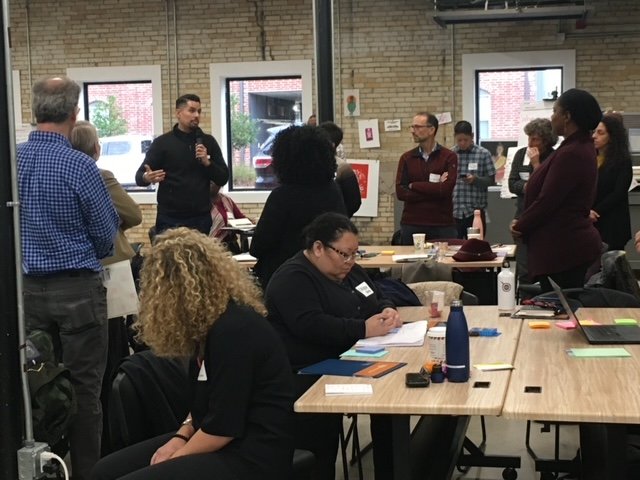Gulf States Food System Solutions (GSFS)
A regional collaborative building capacity and markets with specialty producers across the South
Making production regional again.
Problem.
Fewer and fewer commercial and family farmers are producing food in the United States. Those who do, especially farmers growing food on family farms committed to growing sustainably and climate-smart, are priced and regulated out of the market.
Limited local production and sales (versus concentrated big Ag and international imports), means that regional food supply chains are vulnerable to natural and public health disasters. It also means that essential dollars are leaving the regional economy.
Next steps to change involve addressing the rigidity of the current value chain, quantity minimums from aggregate buyers, and a lack of simplified on-farm food safety management tools.
Results. With small family farm food producers and others, the collaborative has developed and supported regional projects helping local agricultural and ranching producers to fully serve local and national markets:
• Real income has increased for dozens of Black- and women-owned farms in the Mississippi Delta, every year for more than 8 years.
• Local food production by minority-owned and limited resource operations increased by 750,000 lbs in the 2021 season.
• In 2021, regional cooperatives, collectives, and their CSA programs filled 50,000 Rx prescription food boxes for low-income families throughout Mississippi.
Vision. We know that the most effective way to improve the lives of families living in rural communities and struggling with endemic poverty is to support local and regional agriculture and ranching.
Transforming this country’s agriculture sector will create jobs, raise incomes, improve health outcomes, and kick-start the economy on a path to middle-income growth.
Practical, collaborative projects are how we work to address food security and local economic opportunity.
GSFS Current Projects
-
The primary goal of BFRDP is to help beginning farmers and ranchers enter and/or improve their successes in farming and ranching through projects that provide education, mentoring and technical assistance to give beginning farmers and ranchers the knowledge, skills, and tools needed to make informed decisions for their operations and enhance their sustainability.
GSFS Partner Grantee: Mississippi Delta Council for Farm Worker Opportunities Inc.
Project Name: Delta Farm Start
Launched in 2022, Delta Farm Start will serve 60 farms throughout 12 counties in Mississippi’s North Delta: Coahoma, Quitman, Tallahatchie, Sunflower, Bolivar, Hinds, Homes, Humphrey, LeFlore, Sharkey, Tunica and Washington. Coahoma county ranks third nationally in highest-priority areas for food access intervention.
Up to 60 growers will implement an immersive on-farm/ranch training program with identified support services including: soil preparation, sourcing seeds and seedlings, planting, production, harvest, labor, equipment, cold storage and aggregating crops for sale. All support services are provided on-farm in small groups or one-on-one coaching by GSFS collaborative team.
Up to 60 growers will implement an immersive on-farm/ranch training program with identified support services including: soil preparation, sourcing seeds and seedlings, planting, production, harvest, labor, equipment, cold storage, and aggregating crops for sale.
We provide support services on-farm, in small groups, or with one-on-one coaching. This program delivers growers the opportunity to implement on-farm tech through the web-based farm inventory program, FarmQMS, to give beginning farmers and ranchers the knowledge, skills, and tools needed to make informed decisions for their operations and enhance their sustainability.
The goal is to increase income through improved production; connect buyers through an online marketplace; provide a more accurate harvest prediction and better inventory management and marketing; and integrate Harmonized GAP into smaller scale farm operations and enable participants to be competitive and responsive throughout a crises such as Covid-19 and beyond.
-
The Local Food Promotion Program (LFPP) funds projects that develop, coordinate and expand local and regional food business enterprises that engage as intermediaries in indirect producer to consumer marketing to help increase access to and availability of locally and regionally produced agricultural products.
GSFS Awardee: Up In Farms
Project Title: Quality Management and Marketing Tool for Small, Limited Resource, and Historically Underserved Farmers
Small, limited resource, and historically underserved farmers are well behind the adoption curve for quality management systems (QMS) and technologies that improve production planning, monitoring, food safety, and marketing. Quality systems and technology currently available target high volume production, focusing on users with high-end computing hardware and peripherals. This is where the ag technology money is. In the Mississippi Delta, Up in Farms and cooperating partners are fielding an alternative QMS, deployed on smart phones and tablets, that farmers can implement at minimal up-front and operating cost: Farm QMS. With a light, responsive front end and intuitive user interface, Farm QMS is a digital gateway for capturing harvest and food safety data at the point of production. Once this information is entered, Farm QMS supports “digital twin” food tracking as products moves from harvest through the mid-tier value chain and on to end points such as grocers, institutions, food service, and consumers.
-
The RFSP supports multi-stakeholder partnerships and encourages foodshed-level approaches to planning and developing local and regional food economies.
GSFS Awardee: Mississippi Delta Council for Farm Worker Opportunities, Inc.
Project Title: Delta Food System Partnership
The GSFS partnership will add value to the regional food economy by achieving the following goals:
1. Increase the cohesiveness and commitment of specialty crop farmers, to drive higher incomes and reduce risks for producers, processors, and handlers.
2. Establish a regional reputation for high quality, volume production of specialty crops, complementing state-wide (MDAC) and regional food branding initiatives.
3. Create local stakeholder ownership of supply chain relationships, to replace at least 10% of the specialty crops currently imported into the region with locally grown or processed products.
This represents the first comprehensive, system-wide effort undertaken in the Delta.
These goals address the fact that our principal barrier to increased opportunities is not on the demand side, but on the supply side. Solving supply-side problems creates opportunities in a regional food market (Memphis to Jackson) that exceeds 2 million people. Located within eight hours of 14 metropolitan areas (population of 31 million), Delta farmers have substantial additional market opportunity, given increased production by regional farmers.
Gulf States Food Systems Collaborative Partners:
-

DRA Resources.
DRA Resources has over 25 years’ dedicated experience working with non-profit organizations serving rural regions of the United States, Central America, and Eastern Europe. DRA services and expertise are focused on micro economic development for rural communities who have experienced decades of endemic poverty and economic crisis. DRA has worked on community building and AG economic development in Mississippi’s north Delta region for 15 years.
-

Up in Farms
Serving Mississippi fruit and vegetable growers with technical and leadership assistance, UIF is a Value Chain Coordinator in the USDA Food LINC program. UIF has improved production, food safety, and natural resource conservation for small farmers in economically distressed areas. They spearhead with GSFS the development of FarmQMS, an innovative app and online database that combines food safety management, inventory controls, and real-time crop yield projections, facilitating GAP certification and market penetration.
-

Warehouses4Good
Warehouses4Good (W4G), a 501(c)3 non-profit, focuses on developing food warehouses with dry and cold storage in under-served rural counties, Indigenous communities, and US Territories. With pilot programs underway in the Mississippi Delta and Kentucky Appalachia, we are developing additional projects for a tribal community in Arizona as well as North Dakota and distressed counties in southern Illinois. Our goal is 100 warehouses this decade, each owned and operated by a local organization.
We already have identified more than fifty priority locations for development projects and begun the process of engaging local stakeholders in planning, funding, and building facilities. Around our core of senior project managers, cost engineers, and grant writers, we have built a team of analysts, planners, engineers, architects, and builders available to fill gaps in local resources. As an incentive to formally start their projects, we are preparing grants for planning and design at no cost to local stakeholders.
-
Mississippi Delta Council for Farm Worker Opportunities, Inc.
Since 1971, MDC has benefited more than 58,000 migrant, seasonal, and resident farm workers in Mississippi. Executing projects funded by Department of Labor (National Farm Worker Jobs Program) and USDA, their program management expertise and technical assistance has added new farmers, increased farm income, and supported farm family needs in areas such as education, childcare, healthcare, and nutrition. By improving communication to the broader regional food system and providing additional access to intermediaries, this project leverages MDC’s current NIFA Beginning Farmer and Rancher Development Program (BFRDP) grant. Further, their contributions to the Partnership’s mentoring program are a logical extension of their core services.
-
ChangeMatters
-
Cooperating Organizations
Alcorn State Vegetable Processing Facility
Alliance for Sustainable Farms
Happy Foods Project
Chulahoma’s Garden
Mississippi Minority Farmers Alliance
University of Mississippi (UM) Community First Research Center for Wellbeing and Creative Achievement (CREW)
Chatham University, Center for Regional Agriculture, Food, and Transformation (CRAFT)
National Center for Appropriate Technology (NCAT)
-

On Farm Technical Assistance
David Watkins (Jackson, MS)
Carolyn Jones (Okalona, MS)
Robbie Pollard (Horn Lake, MS)
Rockiell Woods (Jackson, MS)
-

Southern Rural Black Woman's Initiative
Serving more than 2,500 women in 77 counties across the MS Delta and the Black Belt of AL and Southwest GA, SRBWI assist Black women farmers in the Mississippi Delta in establishing the first Black women’s cooperative in the state of Mississippi.
Having grown up in the fields of the South, their members benefit from SRBWI technical assistance with sustainable farming, marketing, and consumer education.
Description goes here
Recapturing dollars for small farms and rural economies.
We are developing the technologies, collaboration, and infrastructure needed to channel resources back into rural economies. Technical assistance providers work directly with growers and ranchers to increase reliability, consistency, and yield. Stakeholders organized to rehabilitate warehouses and manufacturing facilities to increase storage, aggregate products, create shared commercial kitchens.
Our focus is on recapturing — for the region’s small operation family farms — a fraction of the billions of dollars spent in the region annually to purchase produce from elsewhere.
Delta Food System Partnership Initiative
Building on more than a decade of supporting small operation Black farmers throughout the Mississippi Delta, the collaborative has begun a new initiative to reform the regional food system supply chain.
Led by Mississippi Delta Council for Farm Workers Opportunities and funded by Agricultural Marketing Service of USDA, project partners include University of Mississippi’s Community First Research Center for Wellbeing and Creative Achievement; Chatham University’s Center for Regional Agriculture, Food, and Transformation (CRAFT); Southern Rural Black Woman’s Initiative; and the Mississippi Department of Agriculture and Commerce.
Together, we are building a resilient, sustainable, equitable trade network from Memphis to Jackson and making important forward steps to transform the U.S. rural agricultural economy.




